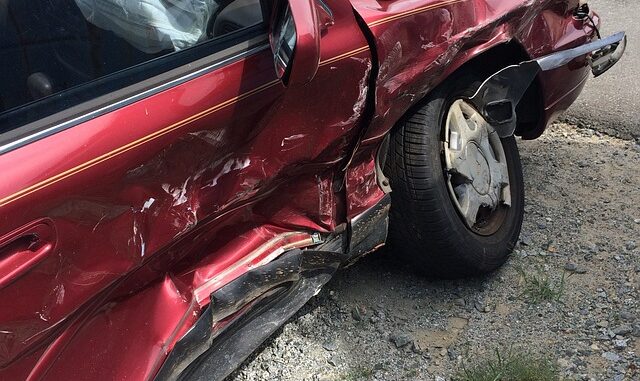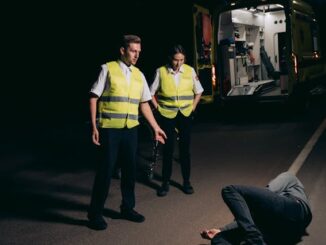
Being involved in a car accident can be a frightening and stressful experience. In the moments following a collision, it’s crucial to stay calm and take the necessary steps to ensure your safety, document the incident, and protect your rights. This guide will outline the essential actions you should take after a car accident in Ontario.
Securing the Scene and Checking for Injuries
- Stop Your Vehicle: The first and most important action is to stop your car immediately, even if the damage seems minor. Leaving the scene of an accident is a criminal offense. Turn on your hazard lights and ensure your vehicle is secure on the side of the road, away from traffic.
- Check for Injuries: Assess yourself and any passengers in your car for injuries. If anyone is hurt, call 911 immediately. Do not move injured individuals unless they are in immediate danger from oncoming traffic or fire.
- Turn Off Engines and Avoid Sparks: If there’s a leak of fluids from your vehicle, turn off the engine to prevent a fire hazard. Leaving the engine running also poses a risk of carbon monoxide poisoning if windows are closed.
Calling for Help
- Contact Emergency Services: If there are injuries, a serious threat to safety (fire, fuel leak), extensive property damage, or a suspicion of impaired driving, call 911 for immediate assistance. The police will secure the scene, gather information, and file an accident report.
- Collision Reporting Centres (CRC): For minor accidents with no injuries, property damage under $2,000, and no signs of criminal activity, you can report the collision to a Collision Reporting Centre (CRC) within 24 hours of the accident. This option is typically available in larger municipalities like Toronto.
Documenting the Scene
- Take Photographs: Use your phone camera to capture photos of the accident scene from various angles. This should include the damage to all vehicles involved, the surrounding area (traffic lights, road signs), skid marks, and any debris.
- Gather Information: Exchange contact details (name, phone number, insurance company) with all other drivers involved. Note down the make, model, and license plate numbers of all vehicles.
- Witness Statements: If there are bystanders who witnessed the accident, politely ask for their names and contact information. Their statements can be valuable later if fault needs to be determined.
Reporting the Accident and Contacting Insurance
- Report the Accident to Your Insurance Company: Contact your insurance provider as soon as possible, ideally within 24 hours, to report the accident. They will guide you through the claims process and advise on necessary repairs.
- Police Report: If the police attended the scene, obtain a copy of the police report for your records. This report will be crucial for insurance purposes.
Seeking Medical Attention
Even if you feel okay initially, adrenaline can mask injuries. It’s essential to seek medical attention after a car accident, even for minor bumps or bruises. Untreated injuries can worsen over time, and a doctor’s report will be critical evidence for potential insurance claims.
Legal Considerations
- Do Not Admit Fault: Avoid discussing fault or apologizing at the scene of the accident. Simply exchange information and provide a factual account of the events to the police. Insurance companies will determine fault based on the evidence.
- Beware of Scams: Unfortunately, car accidents can attract fraudulent activity. Be wary of unsolicited calls or visits from repair shops, lawyers, or medical professionals. Consult with your insurance company for recommendations on reputable service providers.
- Legal Representation: In situations with significant injuries, complex fault issues, or disagreements with your insurance company, consider consulting with a lawyer specializing in car accidents. They can advise you on your legal rights and guide you through the claims process.
Additional Tips
- Keep Important Documents in Your Car: Maintain a file in your glove compartment with copies of your insurance information, registration, and emergency contact details.
- Review Your Insurance Coverage: Familiarize yourself with your car insurance policy and understand the coverage limits for collision, medical, and liability.
- Be Patient: The car accident resolution process can take time. Maintain clear communication with your insurance company and healthcare providers.
By following these steps and staying calm in the aftermath of an accident, you can ensure your safety, protect your rights, and navigate the claims process effectively. Remember, your well-being is the top priority. Don’t hesitate to seek medical attention and prioritize your recovery.



